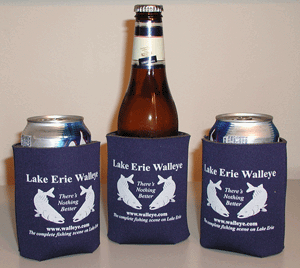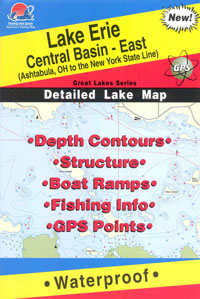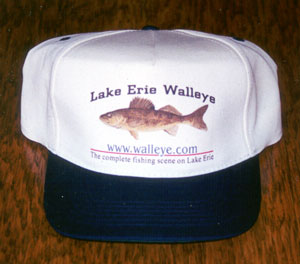|
Modifying Crankbaits For Better Walleye Fishing
By
Gary Parsons and Keith Kavajecz
We use
crankbaits a lot as we travel “walleye country” competing on the
 tournament
trail. Crankbaits are great fish catchers, and with the success they’ve
had on various tournament circuits across the country, everybody’s
fishing them. Why? Because they’re versatile (in color, depth, size,
etc.), effective and have an uncanny knack for producing Big Fish! In
fact, thinking back, we’d have to say that well over 50% of the really
big fish we’ve ever caught have come on crankbaits. Not everyone however
has had the same positive results. The difference is in details. Over
the years we have learned several things about modifying crankbaits to
make them better fish catchers. tournament
trail. Crankbaits are great fish catchers, and with the success they’ve
had on various tournament circuits across the country, everybody’s
fishing them. Why? Because they’re versatile (in color, depth, size,
etc.), effective and have an uncanny knack for producing Big Fish! In
fact, thinking back, we’d have to say that well over 50% of the really
big fish we’ve ever caught have come on crankbaits. Not everyone however
has had the same positive results. The difference is in details. Over
the years we have learned several things about modifying crankbaits to
make them better fish catchers.
The
Right Speed:
An often
overlooked aspect of crankbait fishing is the speed at which the lure is
presented. Terms like “Speed Trolling” have lead many anglers to believe
that crankbaits work better at faster speeds. That is only true in a
few, rare instances. More often, slow is the way to go when it comes to
trolling crankbaits. These baits are much more effective at catching
numbers of fish, and especially big fish, when used to trigger a
“feeding bite” rather than a “reaction strike” which is what happens
when the baits are run fast. Slowing down your presentation, trolling
1.2 to 1.5 mph, you will fool the fish into thinking your lure is an
easy meal.
Varying
the speed of a crankbait is another important way to trigger fish to
bite. A bait that surges forward, then stops momentarily better
resembles the activity of a real baitfish. This “surging” action can
come from the angler imparting a pumping action to the rod, or it can
simply come from the wave action pushing the boat forward as you troll.
The effect is more dramatic when trolling with in-line boards like Off
Shore Tackle’s OR-12 Side Planers. As the boards “ride the waves”, they
pull the crankbaits forward and back adding variation in speed and
action.
Modifying Profile:
There are
times when changes to crankbait’s “profile” are needed to make
 the
bait more effective. We have witnessed this first hand on several
occasions, particularly when fishing on The Great Lakes. There have been
instances when we’d be on a good crankbait bite, only to have the bite
taper off whether from changes in weather or fishing pressure.
Experimentation taught us that bulking-up” the crankbait by adding a
piece of nightcrawler to the front hook of the bait was often all that
was needed to get the bite going again. In fact, this little trick not
only saved the day on more than one occasion, it proved to be even more
effective better than what we were experiencing using the cranks
“undressed”. Some fellow anglers that have also tried this believe the
results are due to the scent added from the crawler, but honestly we
think it has to do more with the added crawler changing the “profile” of
the bait, making it appear larger than it was. In some cases, depending
on the lure being used, the added weight and drag of the crawler also
changes the action of the lure slightly … another modification factor
that can play a role in the lure’s effectiveness. the
bait more effective. We have witnessed this first hand on several
occasions, particularly when fishing on The Great Lakes. There have been
instances when we’d be on a good crankbait bite, only to have the bite
taper off whether from changes in weather or fishing pressure.
Experimentation taught us that bulking-up” the crankbait by adding a
piece of nightcrawler to the front hook of the bait was often all that
was needed to get the bite going again. In fact, this little trick not
only saved the day on more than one occasion, it proved to be even more
effective better than what we were experiencing using the cranks
“undressed”. Some fellow anglers that have also tried this believe the
results are due to the scent added from the crawler, but honestly we
think it has to do more with the added crawler changing the “profile” of
the bait, making it appear larger than it was. In some cases, depending
on the lure being used, the added weight and drag of the crawler also
changes the action of the lure slightly … another modification factor
that can play a role in the lure’s effectiveness.
Increasing A Crankbait’s “Bite”
For a
large part, we have built our walleye fishing careers with what we’ve
learned about fishing crankbaits. One thing about crankbaits that many
pros will tell you is that although they will catch fish right
out of the box, most of them can be improved by changing to better
hooks. When walleyes are hooked on a crank, especially when that bait is
being trolled a long distance from the boat, the hooks can tear a large
hole in the fish’s mouth. That hole can allow the hook to slip out if
the tosses its head just right, or any slack is let in the line. That’s
why, when the money is on the line, we change all our crankbait hooks to
Mustad Ultra Point Triple Grip Treble Hooks. The inward bend of the
Triple Grips locks the fish on, greatly increasing the chances that the
fish is going to stay hooked all the way to the net. The light wire of
the Triple Grip Hooks also lets you use a size larger hook than the bait
comes with without adding weight to the bait and thus deadening its
action. The larger hooks will also increase the bait’s “bite”, giving
you a better chance of “hooking up” when a fish hits the lure.
Color
Modification:
Have you
seen the color selection of crankbaits available on the market today?
There are literally hundreds upon hundreds of colors to choose from. The
problem is, no way can one fisherman have every color crankbait in the
boat at one time. The good thing is, you don’t need to carry all those
colors. Most pros will carry a good variety of colors, but add in some
sort of “paint set” or colored markers that can be used to modify a
lure’s color. Our most commonly used color modification is to add red to
it. At times painting a crank’s bill red, or adding red to the belly of
the lure, makes all the difference in the world. The general feeling is
that the added red gives the bait the appearance of being “wounded”,
thus prime for easy pickin’.
Changing out the lure’s belly hook and replacing it with a red hook is
another way to add a splash of color to the lure. There have also been
times where changing the lure’s tail hook from a bronze hook to a chrome
or nickel plated hook added just the right amount of extra flash needed
to trigger a few more bites.
Conclusion:
Having a
good variety of crankbaits for the various situations you will face as a
walleye angler is important to being successful. Learning how to
“fine-tune” your crankbait presentations with a few key modifications
will make you much more effective at cranking in loads of walleyes.
Editor's
Note:
If you
have questions or comments on this or other articles of ours you may
have read, contact us through our website at
www.thenextbite.com. |





 tournament
trail. Crankbaits are great fish catchers, and with the success they’ve
had on various tournament circuits across the country, everybody’s
fishing them. Why? Because they’re versatile (in color, depth, size,
etc.), effective and have an uncanny knack for producing Big Fish! In
fact, thinking back, we’d have to say that well over 50% of the really
big fish we’ve ever caught have come on crankbaits. Not everyone however
has had the same positive results. The difference is in details. Over
the years we have learned several things about modifying crankbaits to
make them better fish catchers.
tournament
trail. Crankbaits are great fish catchers, and with the success they’ve
had on various tournament circuits across the country, everybody’s
fishing them. Why? Because they’re versatile (in color, depth, size,
etc.), effective and have an uncanny knack for producing Big Fish! In
fact, thinking back, we’d have to say that well over 50% of the really
big fish we’ve ever caught have come on crankbaits. Not everyone however
has had the same positive results. The difference is in details. Over
the years we have learned several things about modifying crankbaits to
make them better fish catchers. the
bait more effective. We have witnessed this first hand on several
occasions, particularly when fishing on The Great Lakes. There have been
instances when we’d be on a good crankbait bite, only to have the bite
taper off whether from changes in weather or fishing pressure.
Experimentation taught us that bulking-up” the crankbait by adding a
piece of nightcrawler to the front hook of the bait was often all that
was needed to get the bite going again. In fact, this little trick not
only saved the day on more than one occasion, it proved to be even more
effective better than what we were experiencing using the cranks
“undressed”. Some fellow anglers that have also tried this believe the
results are due to the scent added from the crawler, but honestly we
think it has to do more with the added crawler changing the “profile” of
the bait, making it appear larger than it was. In some cases, depending
on the lure being used, the added weight and drag of the crawler also
changes the action of the lure slightly … another modification factor
that can play a role in the lure’s effectiveness.
the
bait more effective. We have witnessed this first hand on several
occasions, particularly when fishing on The Great Lakes. There have been
instances when we’d be on a good crankbait bite, only to have the bite
taper off whether from changes in weather or fishing pressure.
Experimentation taught us that bulking-up” the crankbait by adding a
piece of nightcrawler to the front hook of the bait was often all that
was needed to get the bite going again. In fact, this little trick not
only saved the day on more than one occasion, it proved to be even more
effective better than what we were experiencing using the cranks
“undressed”. Some fellow anglers that have also tried this believe the
results are due to the scent added from the crawler, but honestly we
think it has to do more with the added crawler changing the “profile” of
the bait, making it appear larger than it was. In some cases, depending
on the lure being used, the added weight and drag of the crawler also
changes the action of the lure slightly … another modification factor
that can play a role in the lure’s effectiveness.